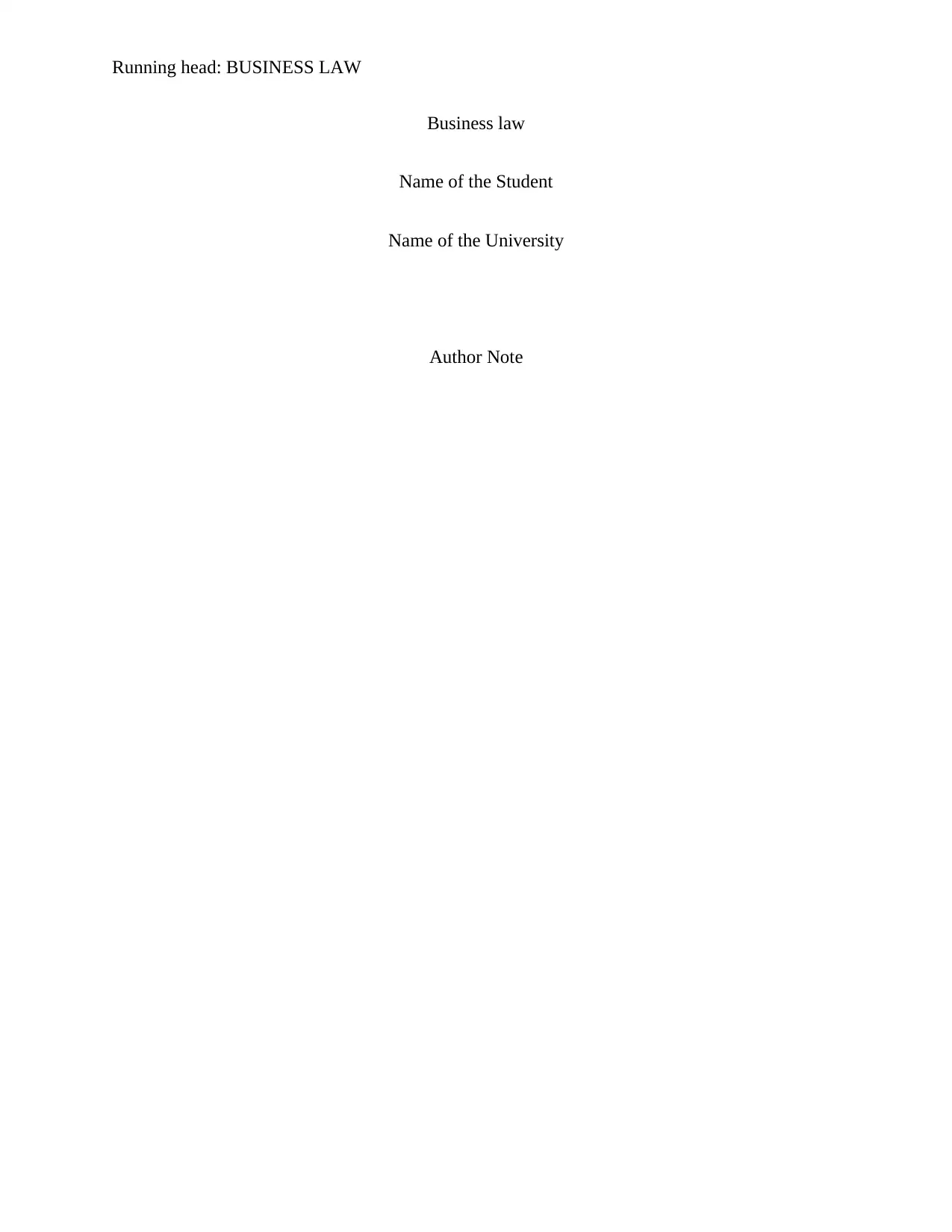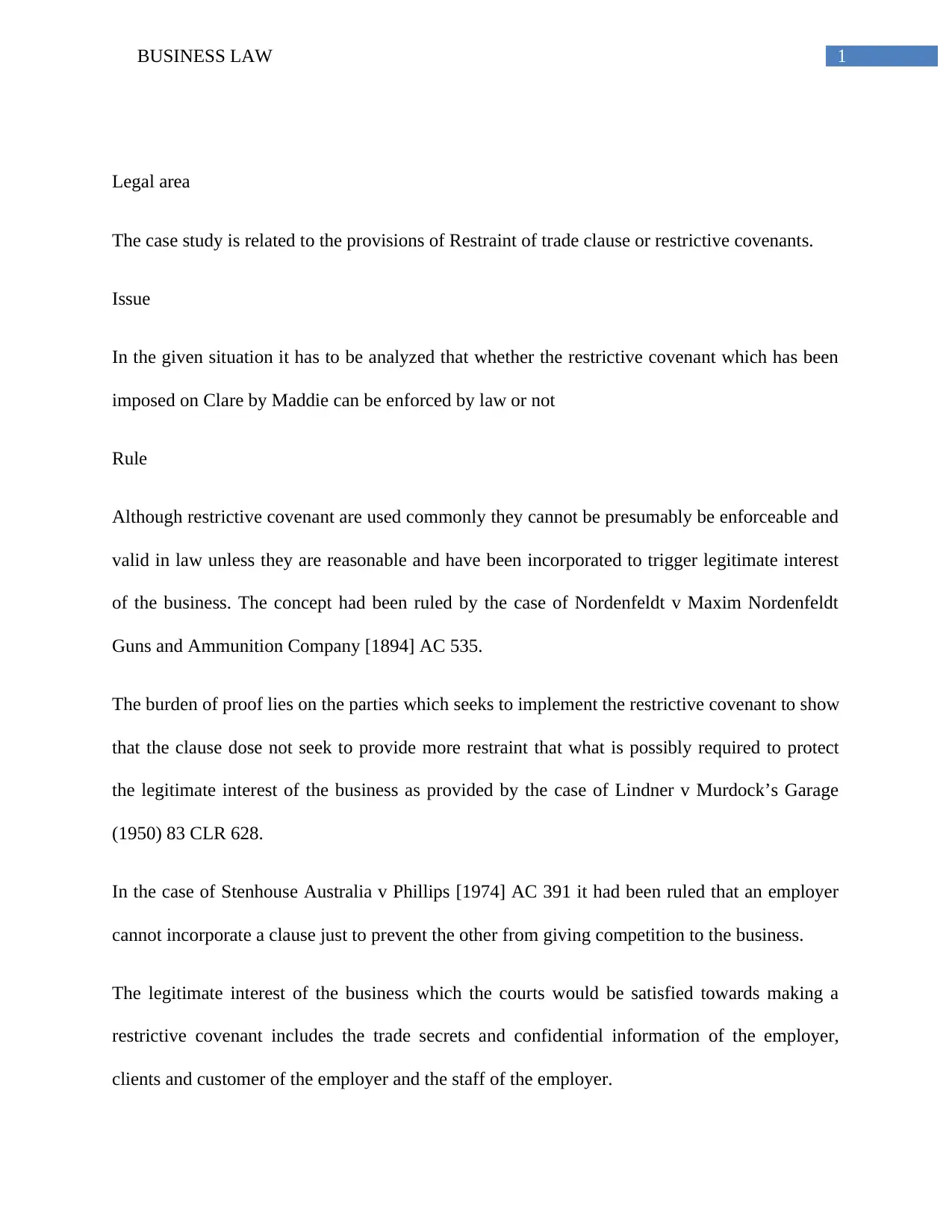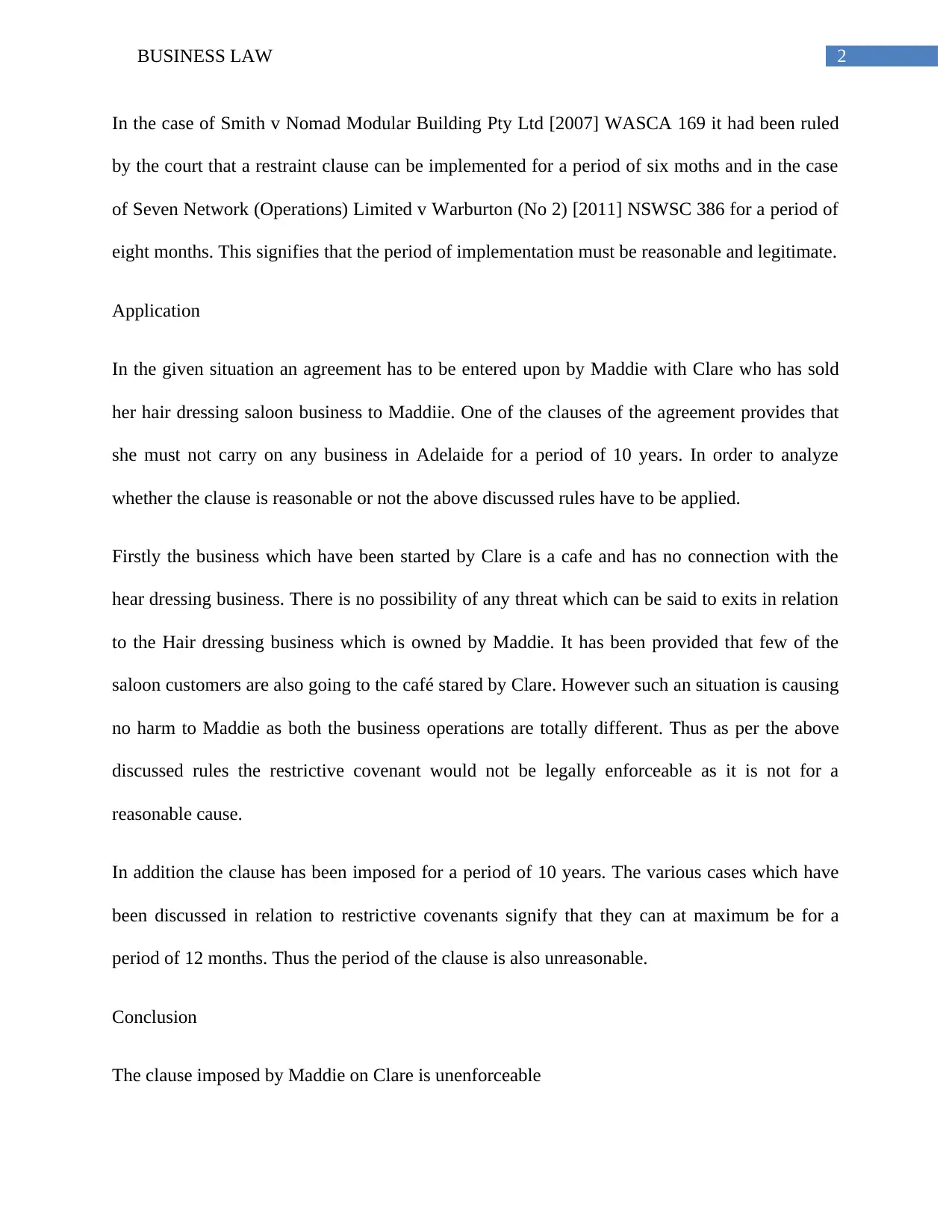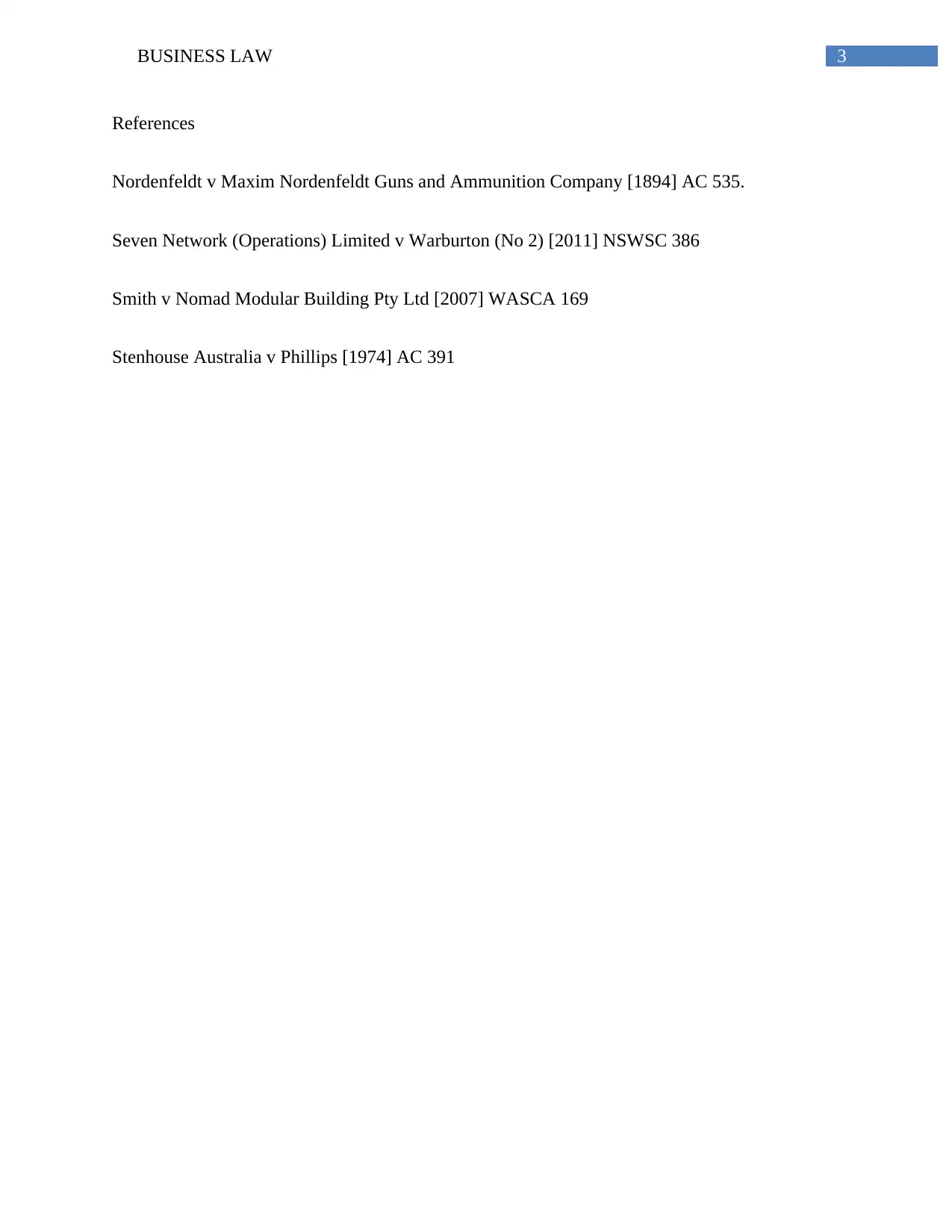Business Law: Restrictive Covenant Case Study and Analysis
VerifiedAdded on 2020/04/21
|4
|637
|296
Case Study
AI Summary
This case study examines the enforceability of a restrictive covenant in a business context. The scenario involves Maddie, who purchased Clare's hairdressing salon and included a clause preventing Clare from operating any business in Adelaide for ten years. The analysis applies legal principles and relevant case law, including Nordenfeldt v Maxim Nordenfeldt Guns and Ammunition Company, to determine the reasonableness and validity of the covenant. The study considers whether the restraint is justified by legitimate business interests, such as protecting trade secrets or customer relationships, and assesses the duration of the restraint. The conclusion finds the covenant unenforceable due to its lack of connection to the hairdressing business and its excessive duration, referencing cases like Smith v Nomad Modular Building Pty Ltd and Seven Network (Operations) Limited v Warburton (No 2) to support this determination.
1 out of 4











![[object Object]](/_next/static/media/star-bottom.7253800d.svg)